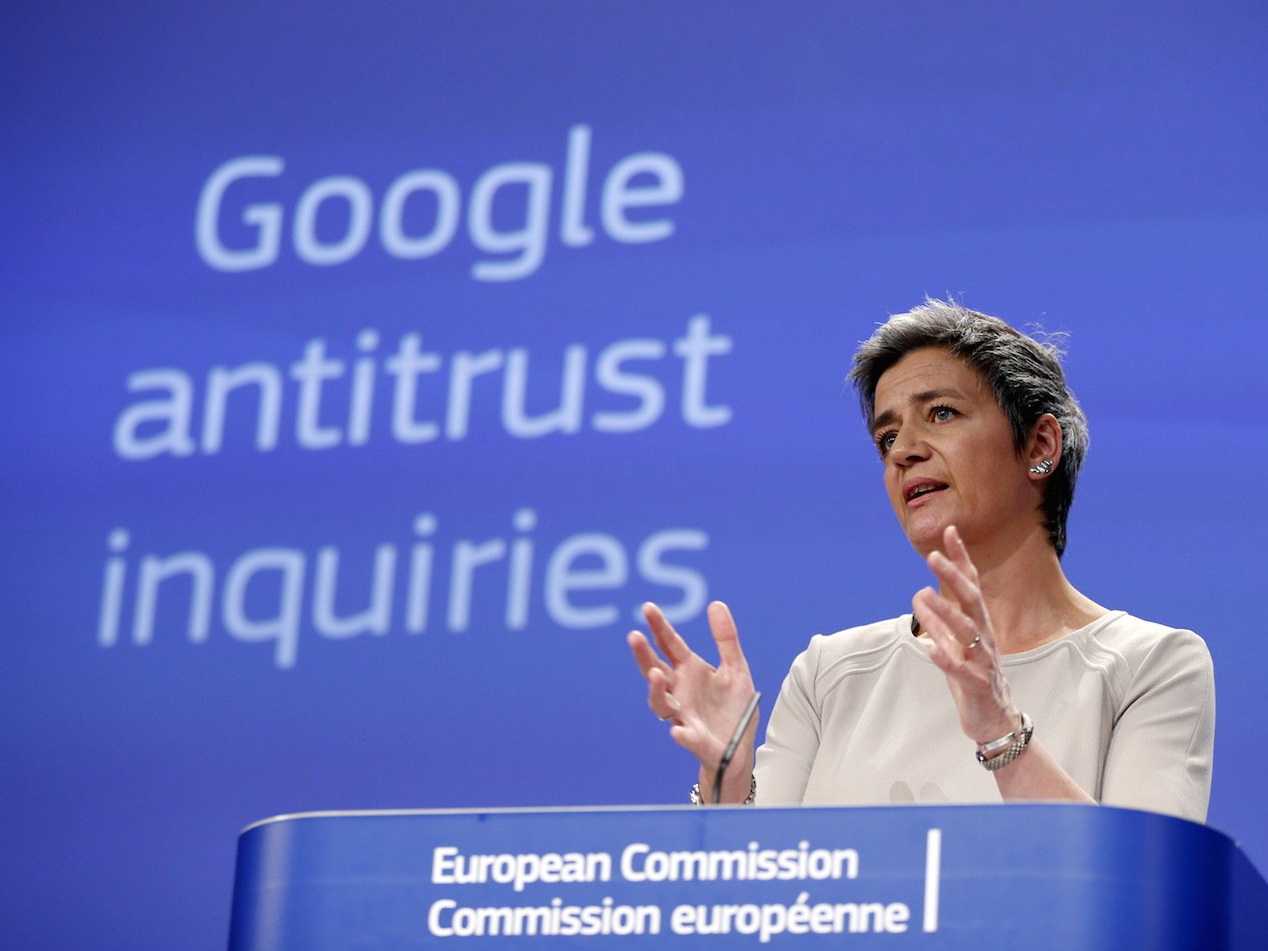Google was just served its biggest fine yet by Europe’s competition watchdog – a massive €2.4 billion (£2.1 billion) for “illegally” promoting its Google Shopping results above similar comparison results from rivals.
Google must change its behaviour within 90 days, or fork out up to 5% of its parent company Alphabet’s global daily turnover.
The European Commission has explained exactly why Google deserved that scalping in a factsheet that takes into account Google’s history of dominance in search, and how it demoted rival comparison services.
First, if you’re not familiar with Google Shopping, it’s that graphical bar that shows up any time you search for a product. For example, if you Google the term “frock”, Google will show you some pictures of dresses with some links to third-party retailers such as British department store House of Fraser.
Here’s an example:

- source
- Shona Ghosh/Business Insider
Let's say you didn't want to buy a frock though. Normal results still show up underneath Google Shopping, but it still takes up almost half of the screen.
Google abused its massive power in search to promote Shopping results
To understand why this is such a problem, Europe's competition regulator examined how Google dominates search.
It found that Google is the leader in online search across its entire jurisdiction - the 31 countries that form the European Economic Area. Google's actually been the leader since 2008 in most countries, it found.
Here's a StatCounter diagram from the regulators showing just how all-powerful Google search is. You can probably see that Yahoo and Bing are pretty much nowhere to be seen, despite being considered Google's biggest search rivals.

- source
- StatCounter
And Google's dominance is self-fulfilling because of "network effects," the regulator said.
"The more consumers use a search engine, the more attractive it becomes to advertisers. The profits generated can then be used to attract even more consumers. Similarly, the data a search engine gathers about consumers can in turn be used to improve results."
Search is the golden goose from which all eggs are laid, in short.
Now, being number one in search isn't illegal by itself. But using that number one position to promote a totally different in-house service is, according to the Commission. Especially if it means pushing down rivals.
What does "rivals" actually mean? The Commission said its focus was kept on other comparison shopping sites, and not sites which sell to you directly like Amazon, or eBay. It didn't name names though.

- source
- Shona Ghosh/Business Insider
As the Commission put it: "Google has abused its market dominance in general internet search by giving a separate Google product ... an illegal advantage in the separate comparison shopping market."
Not only does Google Shopping show up at the top of Google results, the results are displayed in a "rich format, at the top of the search results, or sometimes in a reserved space on the right-hand side."
It also looks like Google Shopping results are exempt from Google's own search algorithms, the Commission added. That's another competitive advantage against rivals who have to ensure their SEO is in shape to appear top of Google's search index.
"Comparison shopping services in the EEA are prone to be demoted by at least two different algorithms, which were first applied in 2004 and 2011, respectively," the Commission said. "Evidence shows that even the most highly ranked rival comparison shopping service appears on average only on page four of Google's search results, and others appear even further down. In practice, this means consumers very rarely see rival comparison shopping services in Google's search results."
Google cost rival comparison services up to 85% of their traffic
The Commission found that Google's practices meant a huge drop in traffic for rivals once Google Shopping was introduced.
Here's what it found:
An 85% drop in the UK92% drop in GermanyAn 80% drop in France"These sudden drops could not be explained by other factors. Some competitors have adapted subsequently and managed to recover some traffic, but never fully," the Commission said.
Meanwhile, Google's traffic went up, it found.
Why the record fine?
The Commission said the €2.4 billion fine accounted for the duration and severity of Google's practices. The regulator was looking at Google's impact on shopping comparison services since 2008, and the fine was calculated based on what the Commission thought Google had probably earned.
The Commission plans to publish even more details around the case, but said it needs permission from Google and other companies because these contain commercially sensitive information.

